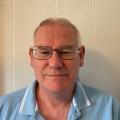
SOUTH Western Ambulance Service NHS Foundation Trust says they are expecting another busy day after declaring a critical incident at the weekend.
The Trust is urging people not to call 999 except in a life-threatening emergency after saying its service across the South West is coming under "extreme pressure".
As a result, some patients may have to wait longer for an ambulance to arrive while others could be advised to access alternative services if their call is not life-threatening.
Richard Marlow, of SWAST, said: “The South West has seen a very busy period over the past few days.
“We have reviewed our systems and have plans in place where we can increase our resourcing. We are focusing on getting to the most critical patients as quickly as possible.”
Mr Marlow said the service received 3,200 calls on Saturday and has seen an upsurge in incidents relating to DIY, gardening and outdoor activities.
He said that paramedics are taking longer to get to incidents because of busy roads being congested with holiday traffic.
The service has urged people to only call 999 in a genuine, life-threatening emergency so that it can help those most in need.
SWASFT has dealt with almost 300 additional emergency incidents a day since the government eased lockdown restrictions to allow the reopening of outdoor hospitality and retail on April 12 and indoor hospitality on May 17.
It responded to an average of 2,913 incidents a day last week, compared with 2,816 incidents a day between April 12 and May 16, and 2,627 incidents a day before any of those changes took effect.
SWASFT is expecting to deal with around 3,000 incidents a day during the bank holiday weekend and half term week when many visitors are likely to travel to the region.
It is asking people to choose well and only call 999 in a life-threatening emergency to help it reach those most in need.
Lead Paramedic Ed Hill said: “We have attended an increased number of emergency incidents recently, and some of them have involved patients who could have sought alternative help.
“During this bank holiday weekend and school half term week, we are expecting our service to be stretched by another rise in patient numbers.
“To help us to help you and your loved ones, please ensure you make the right call. Think 111 before dialling 999 and save emergency ambulances for those who need us most.
“Also, if you decide to make your own way to hospital after calling 999, please remember to call us back to ensure your ambulance is available to someone else.”
People should call 999 for an ambulance in a medical emergency. This is when someone is seriously ill or injured and their life is at risk. For example: if someone has stopped breathing, is unconscious or has serious bleeding.
People with non-life threatening but urgent medical problems should contact NHS 111. For example, broken or fractured bones, sprains, or burns.
Inappropriate use of the 999 service puts unnecessary additional pressure on limited ambulance resources and can delay emergency care to those most in need.



Comments: Our rules
We want our comments to be a lively and valuable part of our community - a place where readers can debate and engage with the most important local issues. The ability to comment on our stories is a privilege, not a right, however, and that privilege may be withdrawn if it is abused or misused.
Please report any comments that break our rules.
Read the rules here